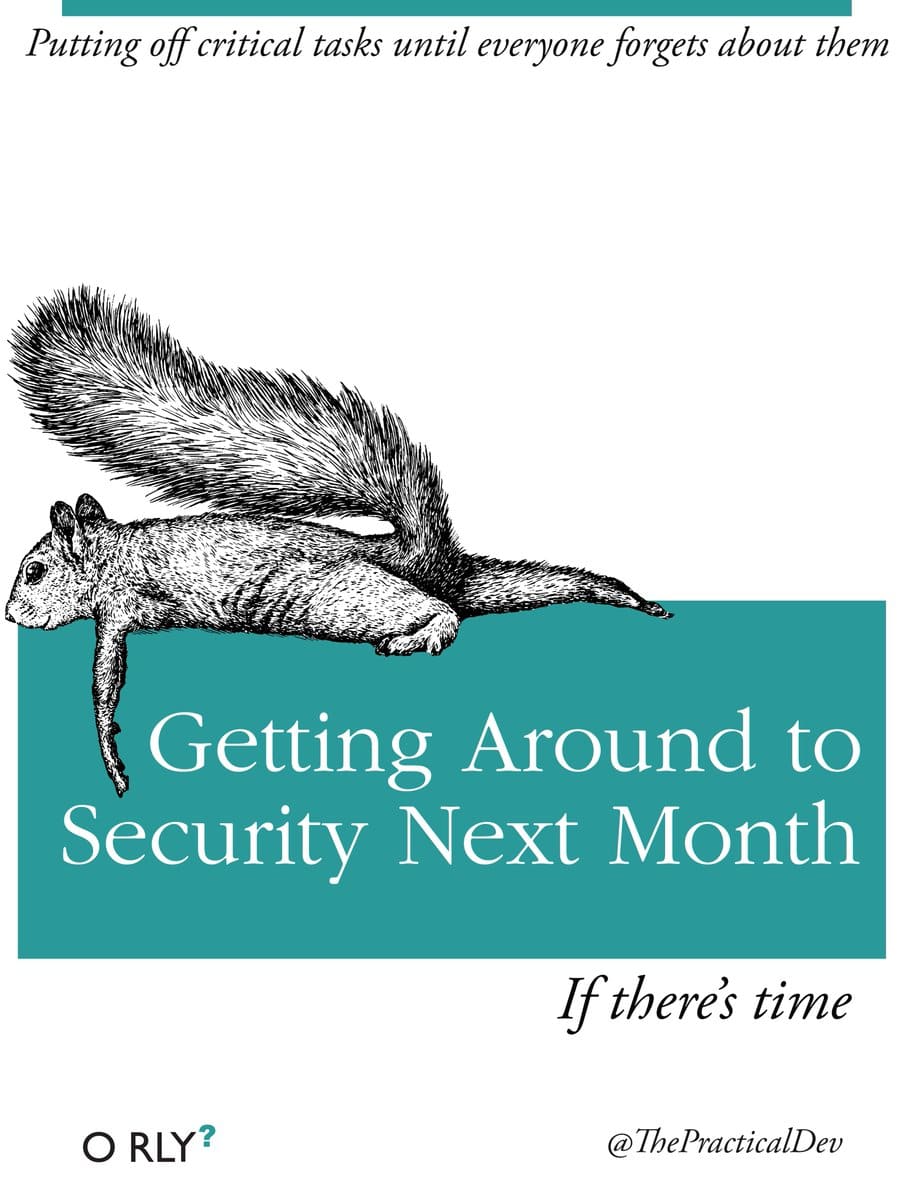
In the bustling digital metropolis of Secureville, a city renowned for its cutting-edge technology and robust digital defenses, there existed a widely acknowledged but seldom addressed phenomenon: "Getting Around to Security Next Month." This practice, characterized by the perpetual deferral of critical security tasks, became an open secret among the denizens of Secureville, a testament to the human penchant for procrastination in the face of looming threats.
Central to this narrative is Jordan, a well-intentioned but overburdened security analyst, whose mantra, "Putting off critical tasks until everyone forgets about them | If there's time," became a reflection of the city's collective inertia on security matters. Jordan, like many in Secureville, found themselves caught in a Sisyphean loop of urgent but non-security-related tasks, relegating the crucial work of fortifying digital walls to a mythical future where time was abundant.
The cycle was predictable. Each time a security briefing illuminated the vulnerabilities in Secureville's infrastructure, a wave of concern would ripple through the corridors of power, prompting solemn vows of immediate action. Yet, as the days turned to weeks and the immediate faded into the milieu of daily crises, the urgency of security tasks dimmed, shelved in favor of more pressing matters with tangible deadlines.
This habitual postponement, though borne of necessity, was not without its consequences. The specter of cyber threats, ever-present and evolving, did not adhere to Secureville's deferred timelines. It was during one particularly complacent lull, a period where security had been relegated to the next month's agenda, that the inevitable occurred: Secureville's defenses were breached.
The breach was not a cataclysmic event but a silent alarm, a wake-up call that reverberated through the city's digital foundations. The vulnerabilities, long known but unaddressed, had been exploited, laying bare the folly of procrastination. The cost of deferral became palpably clear, measured not in hypotheticals but in the tangible strain on Secureville's resources and reputation.
Faced with the aftermath, Jordan embarked on a journey of transformation, championing a cultural shift within Secureville. "Getting Around to Security Next Month" evolved from a mantra of procrastination to a rallying cry for action. Jordan advocated for the integration of security into the daily rhythm of operations, ensuring that it was not a task to be deferred but a continuous endeavor, woven into the fabric of Secureville's digital landscape.
The shift was gradual but profound. Security tasks were prioritized, not as ancillary functions but as essential pillars of operational integrity. Regular security drills, vulnerability assessments, and awareness programs became the norm, embedding a sense of vigilance and responsibility across all levels of Secureville's citizenry.
"Getting Around to Security Next Month: Putting off critical tasks until everyone forgets about them | If there's time" thus transitioned from a cautionary tale to a story of redemption and resilience. In the annals of Secureville, it stands as a testament to the power of proactive engagement with security, a reminder that in the digital age, the luxury of time is an illusion, and the cost of inaction is a price too steep to pay.
And so, in the heart of Secureville, the practice of deferring security tasks to an indefinite future was replaced by a culture of immediacy and accountability, ensuring that the city's digital defenses remained as formidable as its ambition, a bulwark against the ever-shifting landscape of cyber threats.